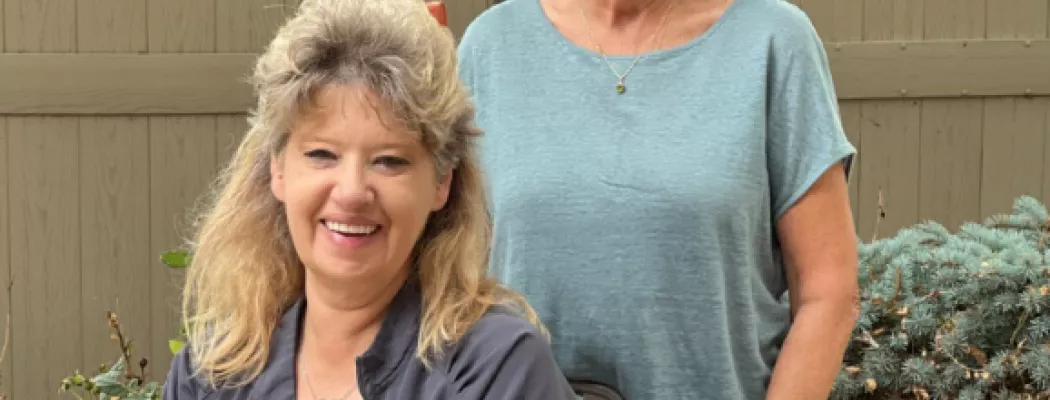
With Discharge Phone Calls, Care Continues After Patients Leave Hospital
Regional West is working hard every day to improve the patient experience, and follow-up phone calls after hospital dismissal are now a big part of that focus.
Temple Russell, BSN, RN, Regional West’s director of Medical Surgical Services, said Regional West implemented post-discharge phone calls in January for patients who had been hospitalized in the Intensive Care Unit (ICU), Progressive Care Unit (PCU), and on the medical surgical floors.
“It’s important to provide the proper care for patients and their families from when they enter the hospital to when they leave,” she said. “If we don’t do that, we can’t count on their success following hospitalization. Our patients and the hospital are both winners with this new process.”
Vickie Schmall, RN, who worked at Regional West for 40 years before retiring in her clinical role, makes an average of 10 to 15 discharge calls a day, with a goal of reaching patients within 24 to 36 hours post discharge. The Birth and Infant Care Center, Acute Rehabilitation Unit (ARU), the Behavioral Health Unit, and the Emergency Department have their own post-discharge processes.
Russell said that a team of employees and clinicians from the Medical Center and Physicians Clinic worked together to develop a standard set of questions for each phone call. The phone calls not only confirm discharge instructions, but help clarify medication instructions, verify future clinic appointments, and provide an opportunity for patients to ask questions or share any positives or negatives associated with their stay.
“Prior to initiating discharge phone calls, we relied on feedback from surveys that patients received after a hospital stay,” she said.” We found that a lot of our elderly patients didn’t always want to fill out and return a survey. We realized that when you’ve been sick and hospitalized, the last thing you want to do when you get home is fill out a survey. We knew there had to be a better way.”
Russell and Schmall agree that the response to discharge phone calls has been overwhelmingly positive.
“Discharge calls have been a game changing tool for Regional West,” said Schmall. “After just a few weeks, I realized it’s important that patients know we want to hear about our shortcomings as well as our successes. When listening to patients’ concerns, the comment I hear most often is, "I feel like I have been heard."
“Patients tell us they appreciate having a place to voice concerns and give kudos. If they have compliments, we make sure and share them with the employees involved. If they have complaints or care issues, it’s such a positive to get issues solved right away,” added Russell. “It’s a work in progress, but we feel good about the direction in which it’s going.”
Once a problem is identified during the phone call, Schmall points patients in the right direction or alerts the appropriate person or department to the issue. If patients are experiencing pain or an unusual symptom, for example, she provides the proper clinic or on-call phone number. If they had an issue with the food they were served while hospitalized, she alerts Food & Nutrition Services. Russell said that system-wide, everyone has been very receptive in hearing issues and making changes when needed.
“We found out we can improve things like the discharge process, how we double check admission paperwork, how follow-up clinic appointments are made, and how to improve the processes on outpatient services. One positive outcome is that we now have manuals for the medical surgical floors, ICU, and PCU so all discharge processes are the same,” said Russell. “As an organization, we’re making strides in accountable care and getting issues to the right persons so they can be solved quickly.”
She added that the program has been such a success that Regional West is exploring the possibility of hiring an additional nurse to make discharge phone calls.
“We want our patients to know that at Regional West, care doesn’t stop when patients are discharged and walk out our door,” she said. “It’s important to identify and help solve issues before they escalate.”
Schmall concluded, “My cup is filled with the telephone relationships I have made with the people I contacted. It feels great when they say, 'I'm so glad you took the time to check on me."